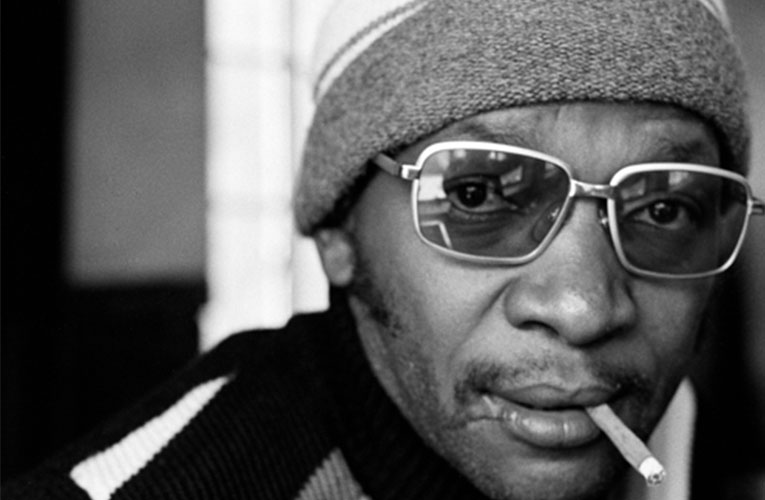Time for celebrations as Soweto Theatre is to be renamed Gibson Kente Soweto Theatre eventually
By Edward Tsumele, CITYLIFE/ARTS Editor

He has done a lot to uplift the spirits of people in Soweto and other black townships during the dark years of apartheid by penning, producing and directing a certain kind of theatre that came to be known as township theatre. These plays that he wrote at that time highlighted the conditions of black people in the township, particularly their hardships as they navigated the apartheid system. Many thespians of note today have passed through his ‘theatre school’, including the likes of playwright Mbongeni Ngema, actress and vocalist Marah Louw, the late legendary songbird Brenda Fassie, actor Darlington Michael and the late playwright and actor Paul Rapetsoa, to name but just a few.
However over the years there have been murmurs, loud enough in the arts circles, perhaps not loud enough for authorities to see the wisdom of appropriately honouring Gibson Kente, the’ Father of Township Theatre’, as he came to be known.
And no sooner did then Minister of Arts and Culture Pallo Jordan finish the sod turning ceremony one morning at Jabulani Township in Soweto in 2009, marking the beginning of the construction of The Soweto Theatre did the whispers that later became louder to name the Soweto Theatre, Gibson Kente Theatre start. Those pleas for some reason, were ignored by several administrations of the City of Johannesburg, under which Soweto Theatre operates under the city’s theatre company Joburg City Theatres under whose auspices Soweto Theatre, Joburg Theatre and Roodeport fall.
However in a move that is poised to please many of people in the arts in general, and theatre in particular, Soweto Theatre will soon be named Gibson Kente Soweto Theatre, CITYLIFE/ARTS can reveal today.
In fact steps are at an advanced stage to rename Soweto Theatre Gibson Kente Soweto Theatre, with the city releasing an notice last week calling for public comments in the renaming of Soweto Theatre, Gibson Kente Soweto Theatre eventually.
“Notice is hereby given that the City of Johannesburg is considering the renaming of Soweto Theatre to the Gibson Kente Soweto Theatre. The proposed renaming is as per a resolution of Council of 31 October 2018, and it is in terms of the City’s Policy on the naming of Streets and Public spaces. Comments are hereby invited from stakeholders, theatre patrons, people from the performing arts community and members of the public. Particulars of the proposed renaming will be available for inspection during normal offices hours at the Soweto Theatre, Corner Bolani Link and Bolani Road, Jabulani, Soweto.
Comments in respect of this proposed renaming should be send to DominicaM@joburg.org.za within a period of 28 (twenty eight) days after publication of this notice. Council will consider all comments before a decision is taken on this issue,” reads the notice from the city published on Friday, July 9, 2021.
These developments around the renaming of Soweto Theatre the Gibson Kente Soweto Theatre will go a long way in placating the disappointment of many in the arts who felt that Kente was not properly honoured and acknowledged for single-handedly assisting in developing theatre in the townships during the politically turbulent years of apartheid. For his efforts he suffered several harassment episodes from the Security Branch of the South African Police of the time, including a stint in jail. The apartheid establishment saw him as a dangerous man through the plays he wrote, produced and directed that became very popular in townships mainly in Soweto and other townships across the country.
With no sponsorship to speak of, they were however commercially successful ventures purely through the patronage of township theatre lovers who saw Bra Gib’s plays as a vehicle for getting to understand what was happening in the country politically at the time.
The success of Bra Gib’s theatrical productions are cited by some in today’s contemporary theatre scene where it is difficult to get the kind of traction for theatre at the scale that Bra Gib’s did as enough proof that there is an audience for theatre in the country, including in the townships, for as long as such theatre talks to the issues of the day that people can connect with easily.
There is no doubt that Kente’s productions were in touch with the burning issues of the day, and as a result, it attracted audiences to venues that were hardly theatre structures to speak of, as they lacked many facilities that are today enjoyed by many of the venues.
With the renaming of one of the iconic theatre buildings in the country, well designed with the latest modern features for a modern theatre, Bra Kib should be smiling from the grave that eventually he is getting the recognition that he deserves.
Soweto Theatre has a 420-seat main venue with an end stage, fully provided with wings and buttress; wo smaller “black box” venues of 180 and 90 seats respectively, a generous indoor foyer area with circulation to all three venues; multi-level change rooms, storage rooms and a “green room” interface with an outdoor covered plaza, which serves as additional informal performance space. The construction of this building, which commenced in June 2009, was completed in 2012.
The following are some of the productions that Kente wrote, produced and directed, and which found a captive audience in the townships:
Plays
Manana, the Jazz Prophet, 1963.
Sikalo, produced by Union Artists at The Great Hall of Witwatersrand University, 1965-66.
Life, produced 1967-70.
Zwi, produced 1967-70.
How Long, produced in Soweto, 1973.
I Believe, produced 1974.
Too Late, produced in Soweto, February 1975.
Can You Take It?, produced 1977.
Hard Road, produced 1978.
Lobola, produced 1980.
Mama and the Load, produced 1981.
Sekunjao, produced 1988.
Television
Mama’s Love, 1995.










